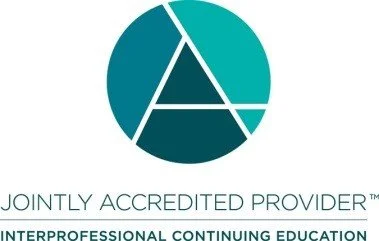LEARNING OBJECTIVES
- Discuss an evidence-based approach to difficult clinical decisions that may arise in the management of common and less common neurological conditions encountered especially in the outpatient setting.
- Assess the application of new and emerging technologies in outpatient clinical environments, inpatient neurology environments, and the intensive care setting
- Evaluate the choice among appropriate pharmacologic and interventional therapies in the treatment of neurological conditions including movement disorders and epilepsy.
- Distinguish between new and recently available treatments for headache disorders and neuromuscular diseases.
- Demonstrate appropriate techniques and clinical decision-making in the use of botulinum toxin therapies for neurological conditions such as spasticity, sialorrhea, migraine, and dystonia through hands-on training.
- Apply practical strategies for managing complex neurological issues, including driving safety, return-to-activity after concussion, and referral timing for epilepsy surgery or advanced therapies.
TARGET AUDIENCES
Physicians, Physician Assistants, Registered Nurses, Advanced Practice Nurses, Fellows and Residents committed to the field of Neurology.
ACCREDITATION & CREDIT DESIGNATION:
Accreditation Statement
In support of improving patient care, Rush University Medical Center is jointly accredited by the Accreditation Council for Continuing Medical Education (ACCME), the Accreditation Council for Pharmacy Education (ACPE), and the American Nurses Credentialing Center (ANCC), to provide continuing education for the healthcare team.
Credit Designation Statement
For Medicine:
Rush University Medical Center designates this Live Activity for a maximum of 9.75 AMA PRA Category 1 Credit(s)™. Physicians should claim only credit commensurate with the extent of their participation in the activity.
Successful completion of this CME activity, which includes participation in the evaluation component, enables the learner to earn credit toward the CME of the American Board of Surgery’s Continuous Certification program. It is the CME activity provider’s responsibility to submit learner completion information to ACCME for the purpose of granting ABS credit.
Unapproved Uses of Drugs/Devices:
In accordance with requirements of the FDA, the audience is advised that information presented in this continuing medical education activity may contain references to unlabeled or unapproved uses of drugs or devices. Please refer to the FDA approved package insert for each drug/device for full prescribing/utilization information.
Disclosure:
It is the policy of the Interprofessional Continuing Education office at RUSH to ensure that its CE activities are independent, free of commercial bias. Therefore, we manage all financial relationships associated with accredited continuing education activities. RUSH asks everyone who has the ability to control or influence the content of an educational activity to disclose information about all of their financial relationships with ineligible companies within the prior 24 months. An ineligible company is an entity whose primary business is producing, marketing, selling, re-selling or distributing healthcare products used by or on patients. There is no minimum threshold; individuals must disclose all financial relationships, regardless of the amount, with ineligible companies. Individuals must disclose regardless of their view of the relevance of relationships to education. Mechanisms are in place to identify and mitigate any potential conflicts of interest prior to the planning, implementation, or evaluation of the continuing education activity. If a financial relationship is identified for the person in control of content, conflict mitigation strategies will be used to mitigate the financial relationship before they assume their role.


